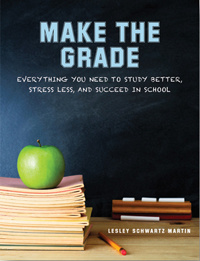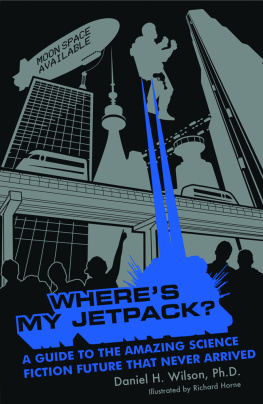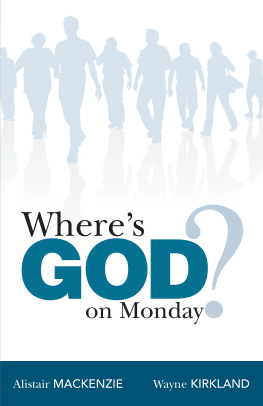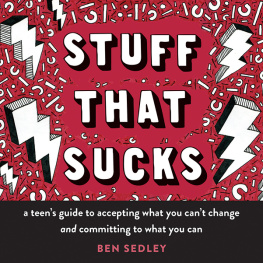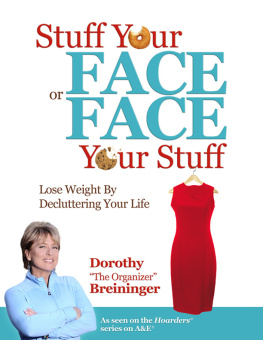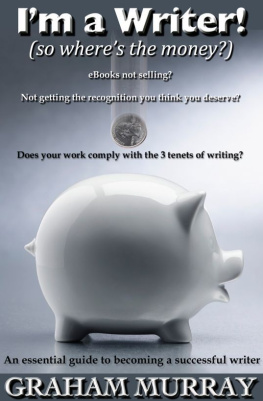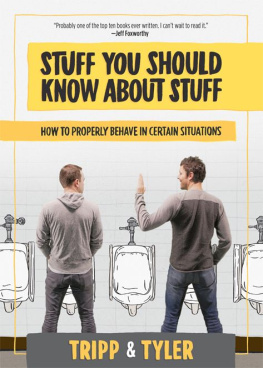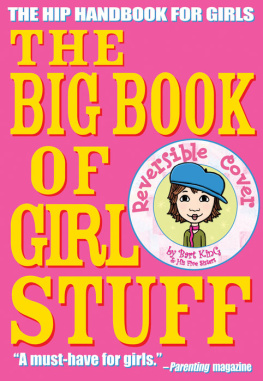
First published in 2007 by
Zest Books, an imprint of Orange Avenue Publishing
35 Stillman Street, Suite 121, San Francisco, CA 94107
www.zestbooks.net
Created and produced by Zest Books, San Francisco, CA
2007, 2011 by Orange Avenue Publishing LLC
Illustrations 2007 by Michael Wertz
Text set in Minion; title text set in Neuland; accent text set in NeutraText
Library of Congress Control Number for the hardcover edition: 2006940258
ISBN-13: 978-0-9819733-7-1
ISBN-10: 0-9819733-7-X
All rights reserved. No part of this publication may be reproduced or used in any form or by any means graphic, electronic, or mechanical, including photocopying, recording, or information storage and retrieval systems without the written permission of the publisher.
CREDITS
EDITORIAL DIRECTOR: Karen Macklin
CREATIVE DIRECTOR: Hallie Warshaw
EDITOR: Karen Macklin
ILLUSTRATOR: Michael Wertz
GRAPHIC DESIGNERS: Cari McLaughlin and Lisa Martin
PRODUCTION ARTIST: Cari McLaughlin
Manufactured in China.
LEO 10 9 8 7 6 5 4 3 2 1
45XXXXXXXXX
Every effort has been made to ensure that the information presented is accurate. The publisher disclaims any liability for injuries, losses, untoward results, or any other damages that may result from the use of the information in this book.
GET WISE AND ORGANIZE
Everybody knows about the s word.
You've got it. We've got it. In fact, everybody's got way too much of it. And nobody wants to deal with it. We're talking about stuff.
It's not your fault. When your parents grew up, they had notebooks and pencils. You have a notebook computer, digital files, hard copies, and notebooks and pencils. They had piano lessons once a week after school. You've got five extracurricular activities with five different types of uniforms and equipment. You've also got emails to return, a blog to update, music to download, not to mention homework to do. Sure, your parents had homework, too. But yours must be typed, formatted, spell-checked, and backed up on your external hard drive.
So, you're thinking: What's wrong with stuff? I like stuff. I LIVE for stuff. The problem, as you may have guessed, isn't really your stuff. The problem is what to do with it all.
Your life is full of friends, classes, activities, and other things you love, but it is lacking one very basic element: order. You can't find your wallet most days. And you can't even find the time to look for it. You keep doing things like locking yourself out of the house, leaving your basketball uniform in the car under your guitar case, and accidentally deleting your final term papers from your computer. On top of it all, your back aches from lugging around that overstuffed hauling device otherwise known as a backpack.
For some people, organizing comes easily. But for most of us, it's a learned skill. This book will show you not only how to get organized at school, at home, and on the go, but also what being organized can do for your life. Think less stress, more time with friends, extra cash, and greater independence. Keeping your life in order will help you keep your head in order, too. And, as you already know, that is no small victory.
GETTING STARTED
Learn the Top Benefits of getting organized
Take our quiz to learn your Organizing Quotient
Get on the path to getting it together
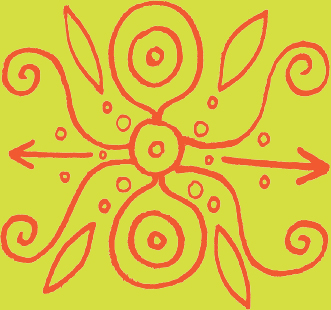
GETTING STARTED
Every fall, the same thing happens. You show up for the first day of school with a perfect new binder and a notebook for every class. Your room is neat, your desk is clean, and your new fall clothes are hanging spotless and wrinkle-free in your closet. (Well, at least they're in your closet.) This year, you think, I'm on it.
Six weeks into the semester, your backpack is a disaster. You've lost track of which notebook was for what, your binder is somewhere under the bed, and your homework (when you've done it and you can find it) is all crumpled and sad. Soon, you can't find your cell phone, and there's a very sinister-looking pile of rumpled clothing creeping its way across the bedroom floor. Your intentions were good, but here you are, snagged again. What happened?
While it's easy to blame disorganization on outside factors, like lack of space and too much stuff, it's often our mind-sets that keep us stuck in disorder. And when we are stuck in disorder, it's not just our notebooks that suffer, but our overall quality of life. In this chapter, you'll learn the Top 5 Benefits of being organized, and what mental obstacles are preventing you from enjoying them. Once you understand why you're stuck in disorder, you can start on the path to getting unstuck for good.
Why Bother?
Learn the Top 5 Benefits of getting organized
Getting organized is not just about finding your missing homework or placating your angry parents. It's about the quality of your life.
Sure, your initial goal might be to solve the problem of an out-of-control school notebook or an unclosable bedroom closet. And that's fine. But once you solve these problems, you'll realize that the payoff goes way beyond being able to find your homework or a clean pair of socks. When your whole setup works for you and not against you, life just goes more smoothly. To see what we mean, check out these Top 5 Benefits of getting organized.
Benefit #: Score Bonus Time
So, if you had an extra hour every day to do whatever you wanted, how would you spend it? Getting organized is a good way to find out. A big chunk of every day gets lost to the never-ending search for stuff, like looking for that other soccer cleat, digging for a pen in your cookie-crumbed backpack, or chasing down the house keys. And that's not even counting the time you waste worrying about not being able to find your math homework, or obsessing over how to tell your best friend that you lost her favorite bracelet. Getting organized frees you from this frenzy, leaving you with more time for the luxurious things in life. Like sleep.
Benefit #: Cash In
It pays to put your life in order. Literally. One side effect of being disorganized is that things get ruined or lost all the time. Books evaporate, headphones break, sunglasses get sat on, and cell phone chargers mysteriously disappear. Replacing it all can add up to serious cash cash that you could otherwise spend on the new things you really want instead of duplicates of stuff you already had.
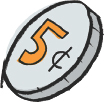
Benefit #: Chill Out
Getting organized is a sweet escape from stress. As you may have noticed, being disorganized is a drain on your nervous system. If a typical day for you means being 20 minutes late to school (again), brainstorming an excuse for not doing your math homework (again), and then borrowing someone else's foul-smelling T-shirt for gym (because you forgot yours again), you're bound to arrive home completely exhausted. Being surrounded by turmoil keeps your mind in permanent panic mode, with no chance to rest. But when life is in order, your head can relax for a change and those chewed-up stumps on the ends of your fingers might actually turn into nails again.
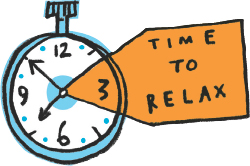
Next page
